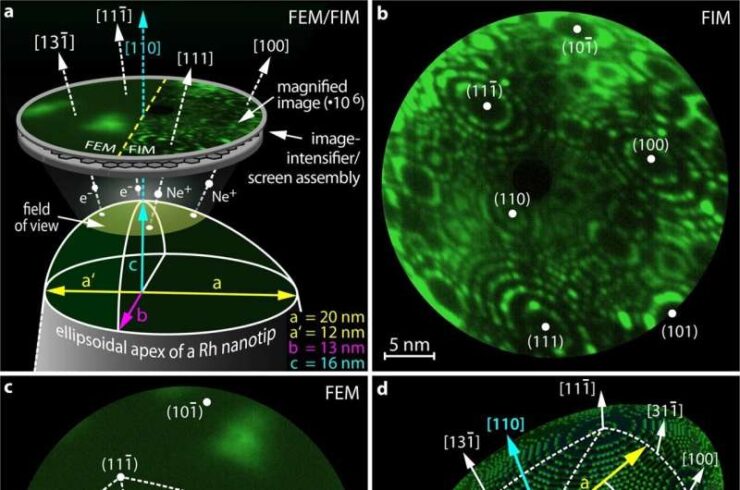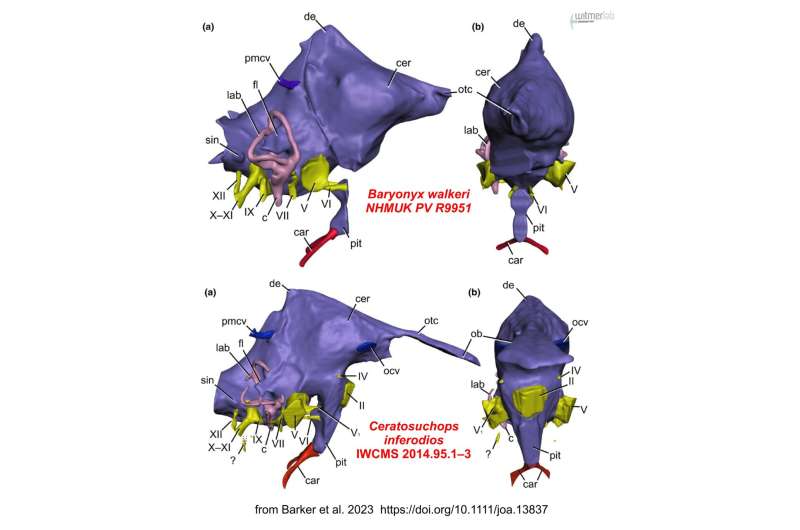TSS OPINION: How the fight for our attention has become the fight for our freedom
by Karma Lei Angelo
枷锁
Shackles
每周日,我的苹果手机都会弹出一个令人自豪的通知,说明我这一周使用软件的平均时间的通知。我什么都做,从研究课题、用Safari浏览器搜索东西,回复消息到在流行软件上播放电视节目,在Pandora上随便放点音乐,或者玩游戏和浏览社交媒体。
Every Sunday, my iPhone flashes a notification, a proud declaration of how much average time I spent on it that week. I do everything from researching topics, asking Safari questions, and answering messages to streaming TV shows on a popular app, popping some random music up on Pandora, or playing games and browsing social media.
我查看了我昨天使用屏幕的时间。我第一次拿起手机是在凌晨3点48分,在一天里总共打开了89次,其中点击社交媒体应用程序25次,发短信12次,发邮件5次。我打了2个电话,拍了3张照片(比我一般拍的十几个少的多),点击量和打开的应用程序甚至更多。我收到了68条来自脸书短信的通知,23条短信通知,16条来自Facebook,还有几十条来自其他地方。没多久我退出了脸书,开始玩打地鼠。正在这时一个红色的标记出现了,然而之前脸书已经显示过一次通知标记了——这次它显示了一个我……一个小时前在电脑看过到的给我的回复。
I checked my screen time for yesterday. I first picked up the phone at 3:48am and opened it a total of 89 times in a 24-hour period. That includes clicking on social media apps a total of 25 times, my text messages 12 times, and emails 5 times. There were 2 phone calls, 3 pictures taken (down from typical dozens I normally take), and still even more clicks and applications opened than that. I had 68 notifications from Facebook Messenger, 23 text notifications, 16 on Facebook, and another dozen or so from other locations. No sooner had I exited the Facebook app than I started playing Whack-A-Mole with other notification badges before yet another one of those red little bastards popped back up on Facebook–this time to show me a comment to my comment that I already saw on my computer…an hour earlier.
昨天,我在手机上总共花了9小时27分钟,比上周的时间减少了25%。
Yesterday, I spent a total of 9 hours and 27 minutes using my phone. And that was down 25% from the previous week.
此外,我还在我的笔记本上进行了很多操作。我通过谷歌Chrome在线辅导,通过Adobe或基于CAD的产品为客户提供他们需要的项目,为我的小说的写作做更多的研究,帮助我的孩子完成学校布置的任务,观看YouTube上的教程,并在没事的时候浏览脸书。
In addition, I also multitask on my laptop. I tutor online through Google Chrome, provide clients with projects they request through Adobe or CAD-based products, do more research for novels I write, help my kids with school projects, watch YouTube tutorials, and browse Facebook in my spare time.
我不是唯一使用这些设备的人。虽然我的其他家人不像我那样依赖信息技术来工作,但他们仍然把大把时间花在电子设备上。我的孩子们用电脑和Chromebook进行线上学习,他们在睡觉前也会在房间里玩网络游戏。他们每个人都有自己的电子设备,会去花时间浏览YouTube视频网站,或者在Discord服务器、Snapchat或Messenger上与朋友聊天。更不用说,我女儿最喜欢的浪费时间的方法是在Instagram上浏览表情包。
I’m not alone in this digital plugin. While the rest of my family is not nearly as reliant and dependent on their technology to work as I am, they still spend their fair share stuck to screens. My kids use their computers and chromebooks for remote learning. They also play online games in their rooms right before bed. They each have their own devices and spend a certain chunk of time going down a YouTube rabbit hole or chatting with friends on a Discord server, Snapchat, or Messenger. Not to mention, my daughter’s favorite time-waster is browsing memes on Instagram.
我还在照顾一个和我儿子一样大的自闭症男孩,当他不在用chromebook远程工作的时候,他就会花时间用在Disney Plus、Netflix或者任天堂S上。他的妈妈在他的手机上设置了对应的限制,所以他不能总玩手机,但他会尽力偷偷去给手机充电。
I also take care of an autistic boy the same age as my son and he spends time on Disney Plus, Netflix, or his Nintendo Switch when he’s not doing remote work on his chromebook. His mom has set up parental controls on his phone, so he’s not always on that, but he steals as much time as he can to be plugged in elsewhere.
还有我的丈夫。他最喜欢的消遣是什么?花几个小时浏览脸书,分享愚蠢的爸爸笑话和奇怪的表情包。当他下班回家时,他有时会通过与客厅电视相连的游戏机播放电视节目。当他看电视、吃晚饭或躺在床上时,他总是沉浸在庸俗的趣事或脸书上最热门的政治文章中。
Let’s not forget my husband. His favorite pastime? Spending hours scrolling through Facebook, sharing dumb dad jokes and weird memes. When he gets home from work, he’ll sometimes stream a TV show through a game console hooked up to the TV in the living room. And, while watching TV, eating dinner, or lying in bed, he’s distracting himself with daily humor or the latest politically-driven article on Facebook.
信不信由你,我们不像其他家庭那样被科技所束缚。我们没有任何智能电视,家里很少有需要联网的设备,我们也不使用任何Alexa-ish或Ring-type设备。我们没有最新的游戏系统,而且我们仍然用DVD看电影。甚至我们的汽车也没有蓝牙功能,也没有能把数据传回制造商的现代处理器。
Believe it or not, we aren’t shackled to technology like other households. We don’t own any smart TVs, we have very few Internet of Things sprinkled in the house, and we don’t use any Alexa-ish or Ring-type devices. We don’t have the latest gaming systems and we still watch movies on DVDs. Even our cars don’t have bluetooth capabilities nor modern CPUs that can transmit data back to manufacturers.
说回我的屏幕时间。所有的数据,点击量,标记,在每个应用上花费的时间都是我的手机所提供的。现在,回想一下你收集到的数据:
- 我花了多久去浏览脸书?
- 我的眼睛在特定的广告上停留了多少纳秒?
- 我在某一天喜欢哪些朋友的帖子?
- 我在“市场搜索”中的新闻或其他什么栏目中点击了哪些话题?另外,你现在花了多少时间来阅读特定的主题或浏览特定的类别?
- 我在youtube上看了什么广告?
- 我在你的电脑上用谷歌浏览器搜索了什么?另外,这是如何让你的网络浏览器上突然出现广告的?
Let’s go back and look at my screen time. All that data–the clicks, the badges, the time spent in each app–was from what my phone provided. Now, imagine the amount of data collected:
- How much time did I spend scrolling through Facebook?
- How many nanoseconds did my eyes rest on a specific ad?
- Which friend’s post did I like that particular day?
- What topics did I click on under “News” or category I searched under “Marketplace”? And how much time did I spend reading specific topics or browsing certain categories?
- What video did I watch on YouTube after an ad kicked in?
- What did I search for on Google from my computer and how does that affect the ads that now pop up on my phone’s internet browser?
你在每小时接收了多少数据?
Just how much data is harvested and collected each hour?
将这个数字乘以家里使用的所有设备,然后把结果乘以世界上所有正和你做同样事情的人数。最后得到的结果完全可以以古戈尔(10的100次方)计,甚至更大。毕竟,这就是“谷歌”这个名字的来源。这似乎很合适,对吧?
Multiply that amount by all the devices used in the house. And multiply that number by all the people who are out there in the world doing the same exact thing I’m doing. The amount of data collected could very well translate to a googol-byte, or ten to the one hundred power, of data or more. After all, that’s where the name “Google” derived from. Seems appropriate, no?
现在问问你自己:这些数据反映出了什么问题?信息技术是如何为我们谋利,又是如何危害我们的?
Now ask yourself: What happens to all that data? How is it used for us? How is it used against us?
如果你还没看过网飞的纪录片《社交困境》,我非常希望你能花一小时34分钟来观看它。它不仅引用了一些具有深刻意义的论述,诸如Auther C. Clarke所说的:“任何非常先进的科技初看都与魔法无异。”,还对强大的科技进行了令人不安但却实实在在的探究,并对媒体这一突出的群体是如何改变大众的表现的进行了研究。这一影片甚至还有一个写着它所陈述的困境的网站:
If you haven’t watched Netflix’s documentary The Social Dilemma, I highly recommend taking 1 hour and 34 minutes of your time to do so. Not only does the movie provide profound quotes such as Arthur C. Clarke’s “Any sufficiently advanced technology is indistinguishable from magic,” it provides a solidly disturbing look into big technology and how social media, in particular, has altered human behavior. The film even has its own website with its stated dilemma:
在此之前,科技工作者从没有对数十亿人的思维、行为和生活方式有这如此大的影响。
Never before have a handful of tech designers had such control over the way billions of us think, act, and live our lives.
这并不是说数字技术公司(更确切地说社交媒体巨头)天生就是邪恶的。那不是他们发家的方式。他们让人们之间互相联系,建立关系,寻找同好和旧友更加方便。侦探利用这些社交平台来阻止谋杀犯,比如在网飞公司的纪录片《不要跟猫做爱》中声名狼藉的加拿大卢卡·马尼奥塔。他们建立了社区,让学生们或朋友们能够保持联系,尤其是在后疫情时代。社交媒体已经扩展到了各种各样能提供网上购物、分享数字媒体、讨论话题、评价书籍、保存食谱或寻找约会的场所的子网络,并为企业家提供商业机遇。这样的紧密联系为人们带来了很多好处。
It’s not to say that digital technologies–more specifically, social media giants–are innately evil. That’s not how they started out. They made it easier to connect with people, build relationships, find like-minded hobbyists, and discover long-lost relatives. Social media sleuths used the platforms to stop murderers such as Canada’s infamous Luka Magnotta from Netflix’s Don’t F**K With Cats documentary fame. They created communities and allowed students to stay connected with friends, especially in a post-pandemic world. And social media has branched into various sub-networks with places to shop online, share digital media, discuss topics, rate books, save recipes, find dates, and provide business opportunities for entrepreneurs. There has been a lot of good come out of being so connected.
然而,另一方面,科技巨头也在研究和利用我们的在线体验。他们运营着用来赚取资本的平台,在那里,每一次点击都能让他们得到从便士到美元不等的微小收入。点击越多,赚的钱就越多。它们控制着我们看什么视频,看多久,看什么事物。我们就像被名叫数字技术的线牵着的木偶,而我们的主人也被他们的金主——也就是股东——控制着。这一切都与他们的金钱和所得利润有关。只要让我们持续点击,让通知信息总是能出现在我们的屏幕上,他们就能赚得盆满钵满。
However, on the flip side of the same coin, tech giants have studied and exploited our online experiences. They run capitalistic platforms where every click is worth fractions of pennies to the dollar. The more clicks, the more money made. They control what we see, how long we see, what things we see. We are digital puppets pulled along computer-coded strings. And our puppet masters are controlled by monetary masters themselves: the stockholders. It’s always about the money and how much they can profit. Keep up the clicking, keep us engaged and chained to notification badges as it lines their pockets.
而我们最终付出的代价是:我们的注意力被“出售”给了出价最高的雇主。
That’s the ultimate cost to us: our attention is being sold to the highest bidder.
这一切是我们自找的吗?我们要为自己在社交媒体上“自杀”似的行为负责吗?毕竟,我们会不耐烦地对一款看似无害的应用的条款和条件点击“同意”,而不考虑它可能带来的后果。相应地,我们交出了从我们手机中窃取数据的许可。广告迎合和纵容我们的喜好,以矫情的娱乐和吸引我们眼球的最新产品的形式增加冲动购买。所以,是的,我们允许这些强大而全面的监控手段进入我们的新闻推送和电话中,在我们在网络世界中“自我泯灭”前提供了一个摇摇欲坠的平台。
Did we put the noose on ourselves? Are we responsible for our own social media suicide? Afterall, we impatiently click on “okay” to terms and conditions of an innocent-seeming app without care to the consequences. In turn, we hand over our permission to have our data siphoned from our phones. Ad experiences are catered and coddled to us, increasing impulse buys in the form of cutesy entertainment and the latest sparkly product that catches our eyes. So yes, we allowed these Big Brother surveillance methods into our newsfeeds and phones, providing the rickety platform we stand on before we commit digital suicide.
这些科技巨头是如何做到的呢?他们发现,发展控制软件的人工智能的算法时增加利润的最佳方式。他们会利用人工智能预测,学习并修改算法,进而控制我们在Facebook、Twitter、Reddit、Instagram和其他所有主要应用程序或网站上看到的一切。人工智能被编程并由少数科技巨头控制着,现在人工智能通过让我们盯着淡蓝色的屏幕而不是让我们想到我们疲惫的心灵控制着我们。如果我们曾经只是接近一个终结者式的世界,那么我们现在就已经身在其中。
How did these tech giants do it? They discovered that the best business models to increase their profits were all based on how better to evolve the artificial intelligence and algorithms behind each click. The AI predicts, learns, and modifies the algorithms which, in turn, control everything we see on Facebook, Twitter, Reddit, Instagram, and every other major app or website out there. AIs were programmed and are controlled by the tech few, and now AIs program and control us by getting us to stare at the pale blue screen instead of getting us to think of our pale blue dot. If we’ve ever come close to a Terminator-esque world, we’re currently in it.
而现在,科技巨头对我们的束缚越来越紧了。随着社交媒体算法一步步夺走了我们独立的思想,科技巨头成功吸引并维持了我们的注意力。在软件中,代码不会向我们展示各种各样的主题,而是缩小和微调搜索范围,来一遍又一遍地向我们展示相同的东西。例如,点击一篇关于“地球是平的”的阴谋论文章,然后Facebook就会向你展示阴谋集团、关于“觉醒”的广告,以及对平面地球理论有相似兴趣的“你可能认识的朋友”。我们的屏幕变成了一个“回音室”,通过一遍遍的重复,我们开始相信我们在这些类似的文章、视频和讨论中所认为的就是真理。我身边最聪明、智商比我高得多的朋友被这种重复限制了思维。
And the rope tightens. Tech giants have successfully grabbed and kept our attention as social media algorithms hijack our minds. Instead of showing us a wide variety of topics, the computer code narrows and fine-tunes searches, showing us the same things over and over. For example, click on an article about a flat-earth conspiracy, now Facebook is showing you conspiracy groups, ads about “wokeness”, and “friends you might know” who share similar interests about flat-earth theories. “Echo chambers” begin to resonate across our screens and through this repetition we begin to believe what we perceive as the truth in these similar articles, videos, and discussions. Even my smartest friends with IQs way higher than mine have fallen prey to these echo chambers.
现在,这些科技公司知道他们已经得到了我们的关注,而这就是一场他们从我们这里赚钱的游戏。以前每10条消息就能看到一个广告,现在减少到每6条,现在是每3或4条。广告每次都要占用我们5秒、15秒或30秒的时间,而我们却放任它们这么做。如果成千上万的人都在观看这样的广告,它就能带来不菲但却易得的利润。
Now that these corporations know they have our attention, it’s a game of how they can make even more money off of us. Instead of seeing an ad every 10 posts on your news feed, it shrunk to every 6, and now it’s every 3 or 4 posts. Ads take 5, 15, or 30 seconds away from us each time and we let them. Multiply each ad by dozens per day and millions of people, and now that becomes extreme and easy profit.
对我们来说,所有这些只是花费了我们的时间和精力,不是吗?
All of this only cost us our time and attention, right?
分裂
Mental mutilation.
还有比铺天盖地的广告更可恶的东西。
There is something far more sinister at play than the mounting and annoying ads which bombard us.
我们不再能够自由而深刻地思考,不再能够面对面地进行文明有礼的交谈。我们的反应充满了激动的情绪和群氓心态,而不是清晰的、有逻辑的思考。我们已经开始用一种非黑即白的思维思考:“它必须是这样的,而且只能是这样的,因为那样是错误的。或者,如果你是(某个政治派别),投了(某个候选人的名字),那么现在就把我从朋友圈中删除,因为你错了,任何理智的人都不会这么投票。”
We no longer think freely and abstractly, able to have a civil conversation in person. We re-act with emotional frenzy and mob mentality instead of thinking clearly and logically. We have begun to think in binary and absolutes: “It must be this way and only this way because that way is wrong.” or “If you are a [insert political affiliation here] and vote for [insert candidate’s name here], then unfriend me now because you are wrong and no sane person can vote like that.”
今年我们看到了更多关于这些“绝对真理”的例子:COVID-19骗局、总统选举、假新闻、种族歧视、对气候变化的否定。我们可能不再能够清楚地区分真假,但有时候假的东西比真的东西更吸引眼球,传播得更快。我们的思维被引导进了如同兔子洞般错综复杂的迷宫,不经历一番混乱和改变就永远无法找出真相。
This year has provided us with many more examples of these absolutes: COVID-19 hoaxes, the presidential election, fake news, racial injustices, climate change deniers. We may no longer be able to see the clear divide between what’s true and false, but what’s false sometimes shines brighter than what’s true and will spread much, much faster. We are led, then shoved, down rabbit hole labyrinths unable to resurface without our brains jumbled and altered.
这种不确定性加剧了焦虑和抑郁,是大众心理健康指数急剧下降的原因之一。在让自己更包容、给我们更多的意义和目标的追求途中,我们走了反路。自2010年以来,因自杀未遂和自残而住院的年轻女孩数量急剧增加。社交媒体已经成为一种无声的毒品,它让我们上瘾,使我们的孩子容易受到网络欺凌、网络喷子和网络压力的伤害,他们需要获得最多的“赞”和最可爱的过滤器。相应地,他们的思维发育的方式与其他几代人截然不同。
This uncertainty feeds anxiety and depression and is another reason mental health of the masses has taken a nosedive. In an effort to feel more inclusive and give us more meaning and purpose, the opposite has been achieved. Hospitalizations for suicide attempts and self-harm injuries for young girls have dramatically increased since 2010. Social media has become a silent drug and a digital addiction that makes our children vulnerable to cyberbullying, internet trolls, and online pressure to have the most likes, the cutest filters. Their brains have developed differently than other generations.
当你有能力控制20亿人的想法,你就有能力导致社会崩溃。文化消亡成为一种现象。起义正在各地兴起。各国国内正以指数级的速度两极分化。一种民间的“战争”已经开始。
When you have the ability to control what 2 billion people think, you have the ability to cause societies to collapse. Cancel culture becomes a thing. Uprisings happen. Nations become more polarized at an exponential rate. Civil wars begin.
我们的社会已陷入绝境。它因破坏而不是建设而显得热闹无比,媒体和头条新闻吸引了我们的眼球,而这给局面火上浇油。人们被划分等级,社会已经失去控制。美国已然分裂,充满了内乱、错误信息和焦虑。我们现在生活在一个既像反乌托邦又像乌托邦的世界。
We have become a society of doom. We thrive on de-struction instead of con-struction, exacerbated by the media and headlines that catch our eye. Ratings rule and chaos controls. We’ve become nations divided, full of civil unrest, misinformation, and anxiety. We now live in a world which is simultaneously dystopian and utopian.
如果我们继续沿着这条路走下去,我们很快就会看到一个前美国分裂成几个或几十个更小的国家。“团结则存,分裂则亡”从来没有像现在这样意味深长,因为我们正被算法牵着鼻子走向两极分化的方向。我们正从内到外撕裂自己。下一场战争不会因为钥匙的转动或红色电话的呼叫而开始。它不会是从某个地下掩体发射的导弹。指导我们的是算法,控制我们的是数据字节。下一场战争将从点击屏幕开始。
If we continue down this path, we could soon see a former United States, fractured into a handful or dozens of smaller countries. “United we stand, divided we fall” has never meant more than it does now as algorithms lead us by our leashes to polarized directions. We are tearing ourselves apart from the inside out. The next war won’t be started with the turn of a key or a call from a red phone. It won’t be a missile launched from an underground bunker somewhere. It will be the algorithms which guide us and the bytes of data which control us. The next war will be started from a sequence of clicks and taps.
破局
Broken chains
只要没有大规模的通讯故障,我们现在所拥有的技术联系就不会消失,也不应该消失。所有理智而严肃的讨论都会得出一个结论,科技巨头和社交平台是战略性的工具和用处广大的武器。我们只需要脚踏实地地进行平衡和调解。我们需要让一切从两级的状态扳回原处,让它为我们带来幸福与团结。
Short of a massive communications failure, the technological connection we have now is not going away. Nor should it. For all the sobering and somber discussion, Big Tech and social platforms are strategic tools and useful weapons. There just needs to be solid balance and mediation. We need the pendulums to return from the far polarized ends they are in, back into the happy median that brings us back together.
监管大型科技公司是必要的。美国的立法者正在研究确立网络隐私法,就像欧洲的《通用数据保护条例》(GDPR)一样。他们花了数年时间来研究以下问题:
- 监管大型科技公司的法律影响,包括如何处理错误信息、数据隐私和反垄断问题;
- 更新/修订1996年《通讯礼仪法》第230条,该条款保护言论和创新自由,包括虚假、非法和有害信息;
- 以反垄断为由打击大型科技公司,迫使它们停止危害自由竞争行为,比如美国联邦贸易委员会对Facebook的诉讼。
Regulating Big Tech is necessary. Legislators in the United States are looking into privacy laws, much like Europe’s General Data Protection Regulation (GDPR). Lawmakers have spent years working on things such as:
- The legal implications on regulating Big Tech, including how to tackle misinformation, data privacy, and antitrust issues;
- Updating/revising Section 230 of the Communications Decency Act of 1996 which protects freedom of expression and innovation, including fake, illegal, and harmful information; and
- Hitting Big Tech with antitrust violations and forcing them to end anti-competitive behaviors, such as the lawsuit by the FTC against Facebook.
新生
The New Freedom.
与此同时,作为消费者和科技用户,我们能做些什么呢?我们怎样才能夺回我们的注意力呢?我认为这个问题的答案不会简单。
What can we, as consumers and tech users, do in the meantime? How can we take back our attention? I don’t think there’s a simple answer here.
对我来说,我仍然需要Facebook、Instagram和Twitter来建立我的写作关系。我的生意需要亚马逊(Amazon)、Goodreads(归Zon所有)和Audible(也归Zon所有)。我在研究,接受邮件和进行辅导时还需要谷歌。当然,苹果因为我的苹果手机而“拥有”我。所以,我无法从这些怪物身上抽身。
For me, I still need Facebook, Instagram, and Twitter for my author connections. I need Amazon, Goodreads (owned by the Zon), and Audible (also owned by the Zon) for my business. I still need Google for my research, email, and tutoring. And, of course, Apple has me because of my iPhone. So, there’s no removing myself from some of these monsters.
然而,在看了《社交困境》和我自己的屏幕时间统计数据之后,我已经开始采取措施来让自己尽量避免出现《黑客帝国》中描述的景象。我放弃了Snapchat。我停用了我的What’s App,我很少登录Discord或Reddit。我已经停止了我的Instagram和Twitter活动。我把我的许多社交媒体应用程序放到了一个文件夹里,并关掉了所有非工作或家庭需要的通知。
However, after watching The Social Dilemma and seeing my own screen time statistics, I’ve started taking steps to unplug myself from the Matrix as much as I can. I bailed on Snapchat. I deactivated my What’s App. I’m rarely on Discord or Reddit. I’ve pulled back on my Instagram and Twitter activity. I moved many of my social media apps into a single folder and turned off all notifications that weren’t for business or family.
我还和我的两个孩子就他们的电子设备使用情况进行了长谈,向他们展示了自己的屏幕使用时间统计数据。我女儿开始从事绘画和其他不需要信息技术的活动。我儿子正在研制他的VEX机器人并学习编程。我每天都抽时间和他们面对面地谈谈他们的生活、学校、心理健康。这些举措不是完美的,也不是我期待的他们对待对于数字网络的痴迷的方式,但它比以前更好。这是改变的开始。
I also had a long talk with both my teenagers about their usage, showing them their own screen time statistics. My daughter has taken up painting and other non-digital activities. My son is working on his VEX robot and learning to program. And I make time each day to talk to them, face to face, about their day, their school, their mental health. It’s not perfect nor is it where I wish they would be with their digital obsessions, but it’s better than it was. And that’s a start.
如果要问我有什么建议的话,我建议你读完这篇文章后,关掉你的手机或笔记本电脑。关掉通知和所有设备。参考我做的步骤来做,如果一定需要的话可以步子迈得小一些。不要给大型科技公司更多的数据来让你沉迷于他们的信息。请自由地去浏览和体验这个世界,而不要被屏幕上的像素束缚。
If I could recommend anything, I’d say once you’re done reading this, shut off your phone or close your laptop. Turn off the notifications and all the devices. Take similar steps as I’ve done, small ones if you need to. Don’t give the Big Tech AIs more data to create your digital bindings. See and experience the world in freedom, instead of their shackled pixelation.
翻译:墨淞凌@STARSET_Mirror翻译组
审校:CDN@STARSET_Mirror翻译组











